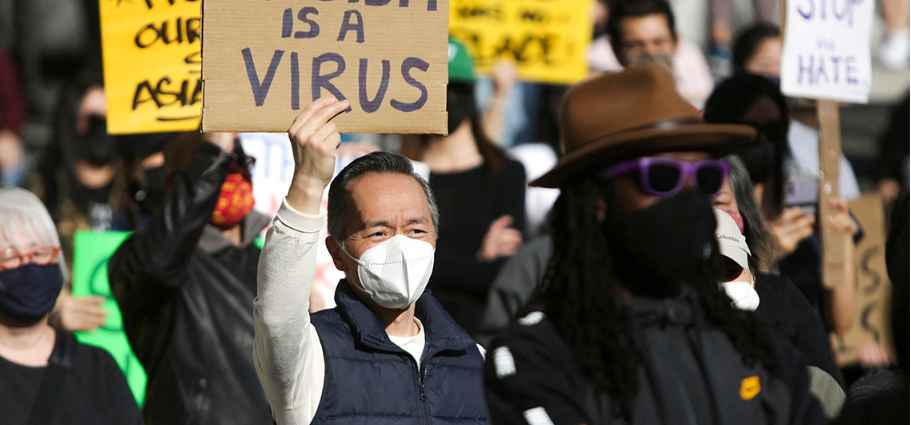On March 19th, the third CNIW Health and Bio-Medical Symposium and Community Contribution Award Ceremony was held at Hart House, University of Toronto main campus. According to Dr. Peizhong Peter Wang, “Today also marks the official release of its report on Anti-Asian discrimination during the COVID-19 pandemic. It has been almost two years since the project was started.” Dr. Wang, CNIW director, also told attendees and reporters that “to the best of my knowledge, this is the largest and most comprehensive study in Canada on this sensitive and important topic.” Nan Lei, a graduating MSc student who is using the data collected in this project for her thesis, praised the report’s scientific evidence and emphasized the need for a holistic approach, saying “it calls a holistic approach to address this social issue. Direct scientific evidence is the first step.”


The full report is available at: https://www.researchgate.net/publication/369213382_Examining_Anti-Asian_Racism_and_Discrimination_in_Canada_during_the_COVID-19_Pandemic_Incidence_Prevalence_and_Associated_Factors
凤凰卫视(Phoenix TV)Report
Report Highlights:
The main findings:
- More than half (53.3%) of Chinese Canadians in Canada have experienced discrimination since their arrival in Canada, with the rate of discrimination experienced by Chinese immigrants almost three times higher than that experienced by non-indigenous, non-visible minorities (16.5% vs. 53.3%) (data source: 2019 GSS).
- Our statistical modeling results indicate that since the onset of the COVID-19 pandemic, the risk of being a victim of all types of discrimination has increased significantly by 16.70 times (95% CI: 9.43-29.56) compared to the pre-COVID-19 period.
- Public places are the most common locations for experiencing language and physical discrimination, with 45.4% and 48.2% of incidents occurring there, respectively.
- Only 7% of discrimination victims report the incident to the police or relevant authorities, with lack of knowledge (30.96%), safety concerns (28.60%), and language barriers (27.41%) being the most common barriers to reporting.
- Experiencing or perceiving discrimination predicts higher psychological distress or poorer mental health outcomes, with over 80% of participants reporting feeling scared, anxious, depressed, stressed, and angry because of discrimination. Anger is the most predominant feeling about discrimination (95.33%).
- About 83% of participants agreed that Asian immigrants are more likely to experience discrimination compared to other minority groups in Canada. More than half of the respondents believed that they or their family members would encounter discrimination in the near future.
- A majority of participants believe that COVID-19 is one of the major reasons for increased discrimination towards Asian immigrants, and ad hoc legislation would help ameliorate the situation.
Conclusion and recommendations
This report provides first-hand evidence of racism, discrimination, and hate crimes towards Chinese Canadians that occurred pre- or during the COVID-19 pandemic, based on a large sample survey of over 740 Chinese immigrants primarily from mainland China during the early stage of the pandemic. Our results corroborate other studies and reports across Canada and other Western countries, while also providing deeper examinations of related factors. While addressing all identified issues in this report may not be easy, it calls for actions that may improve the current situation and involves governments, communities, and individuals.

